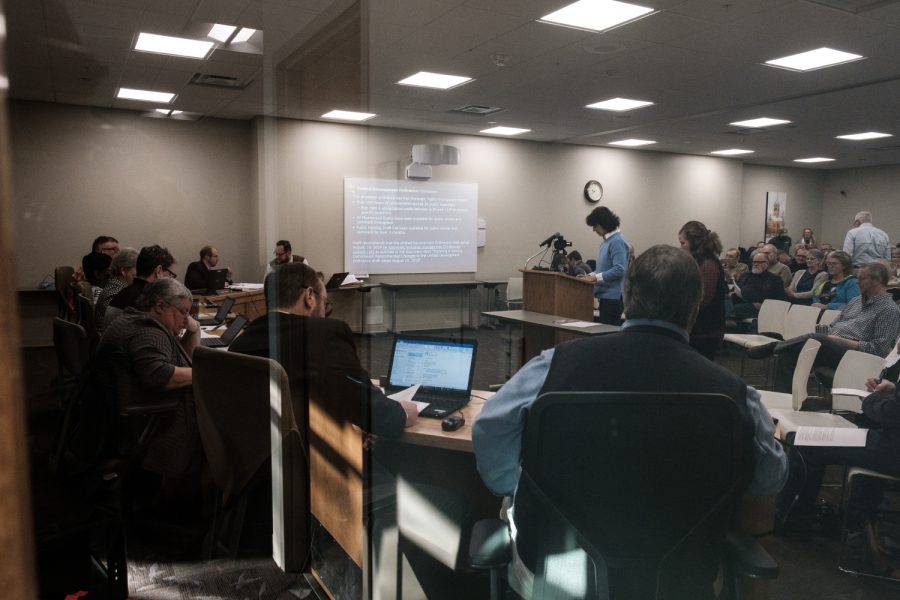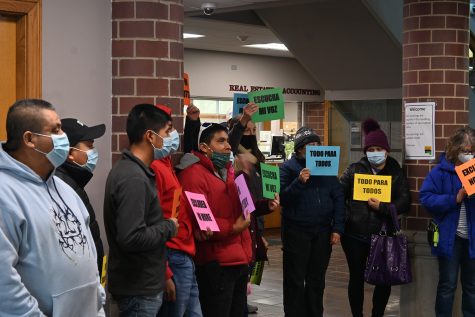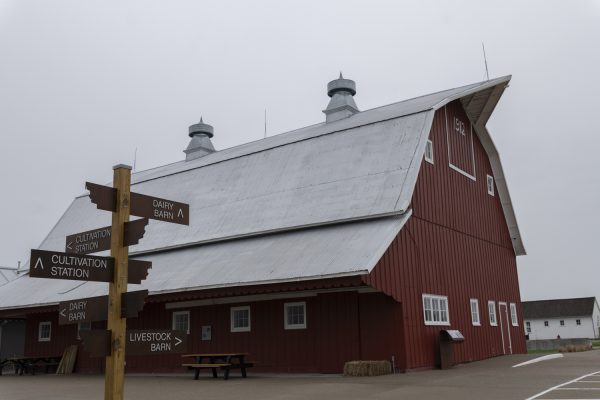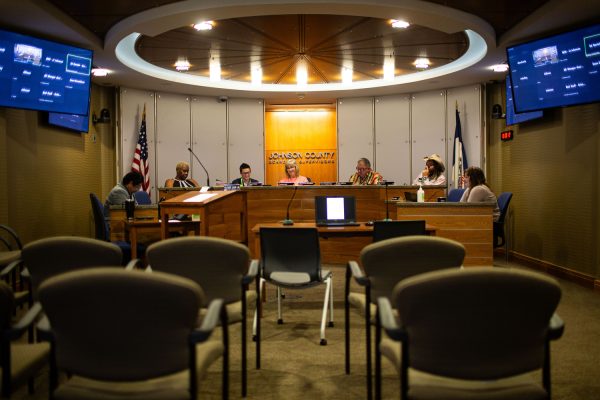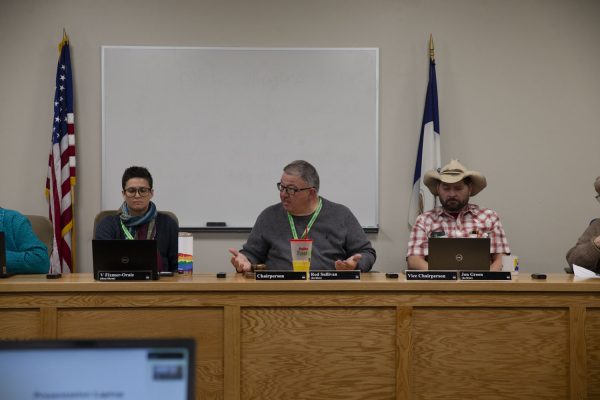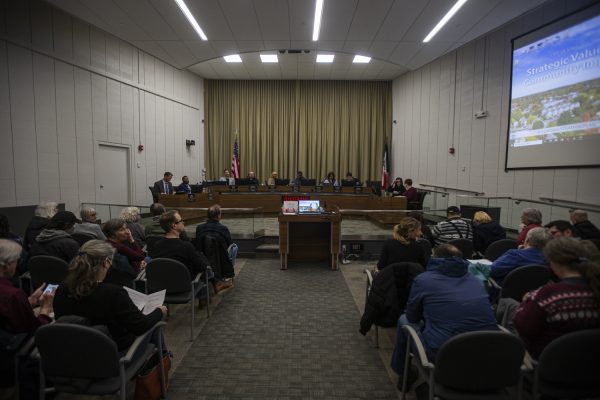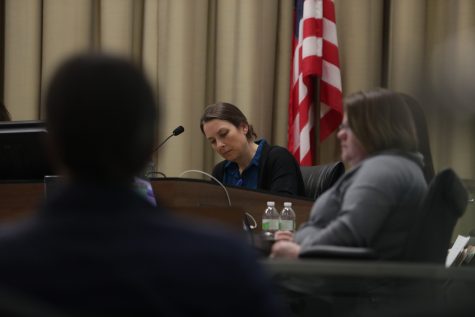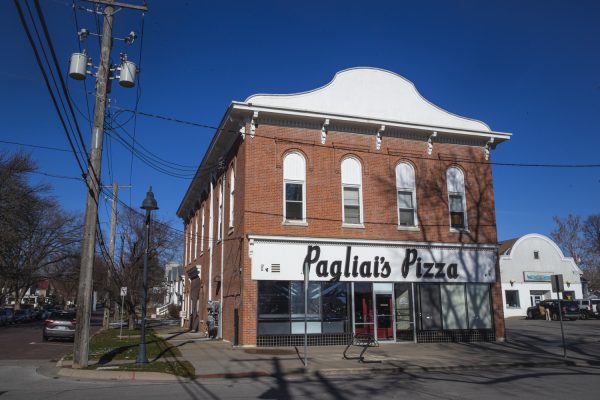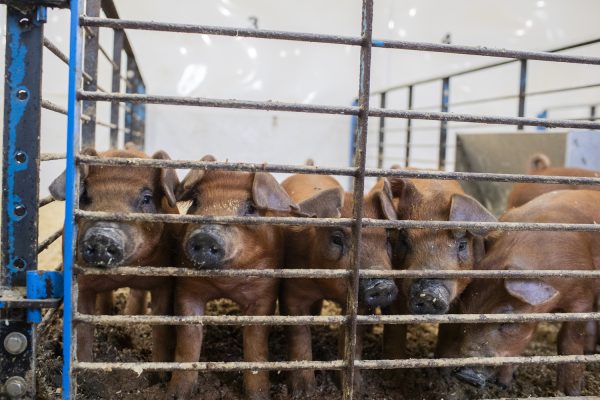Johnson County supervisors OK final version of Unified Development Ordinance
The Johnson County Board of Supervisors passed the third and final consideration of an ordinance that would tighten land-use regulations and define what land is considered agriculture based on the land’s primary usage, rather than number of acres.
Johnson county residents prepare to speak to the Board of Supervisors during a public hearing to replace the Unified Development Ordinance at the Johnson County Human Services building on Thursday, December 5, 2019. The ordinance plans to add a formal request application for alterations of farms under forty acres. Farmers from around Johnson county gathered to voice their concerns about how the new ordinance could affect family farms.
December 19, 2019
The Johnson County Board of Supervisors passed the third and final consideration of an ordinance that would tighten farmland regulations with a 3-2 vote on Thursday and will go into effect on Jan. 15.
The Unified Development Ordinance was passed by the board on Dec. 19 in favor of the 16 recommendations from the Planning and Zoning Commission. The ordinance must be published in its final form in at least three newspapers before it can take effect. Johnson County Supervisor Chairperson Lisa Green-Douglass said the final ordinance will be about 200 pages.
The board voted the same way in all three considerations of the ordinance. The revised ordinance regulates animal confinement on farmland and what land can qualify for agriculture exemptions from building and zoning regulations. In the ordinance, plots of land less than 40 acres are not presumed to be for agriculture purposes and to receive an exemption, the farmer must demonstrate a combination of a history and education in agriculture and has intent to continue significant and ongoing agriculture operations on the property.
Green-Douglass said the board has received feedback from people through letters and emails, and said the board has been taking that input into consideration. Supervisor Janelle Rettig said Thursday that she’s been hearing feedback on this ordinance since they first drafted it in 2017.
“The ordinance was not drafted in a vacuum and it was not a last minute — there was a lot of opportunity for the public to weigh in, but recently there have been a couple organizations who decided to weigh in in such a way that they’re misrepresenting what’s actually in the ordinance,” Rettig said during the Dec. 19 meeting.
Rettig called out the Board of Realtors and the Farm Bureau for sending out inaccurate information. She said she’s heard people say the ordinance will discriminate against small farms, but the ordinance defines farms based on the primary usage of the land and not based on the size.
The board held a two-hour public hearing on the ordinance Dec. 5, which was met with contention among local farmers.
“The part that was most contentious was the first recommendation by the planning and zoning commission,” Green-Douglass said, referring to a provision that would have required farmers to undergo a public hearing if they wanted to expand a confined animal-feeding operation.
The provision stated that a feeding operation with a density of 25 animal units per acre of livestock rearing area or more on a less-than-40-acre operation would require a public hearing with the supervisors. The final ordinance does not include the requirement for a public hearing. Green-Douglass voted against the final version because of environmental concerns.
The board did not schedule time for public hearings in the second and third considerations, despite scrutiny from Johnson County farmers. Green-Douglass said that because they did not allocate time for a public hearing on the agenda, they could not legally respond to public comments.
Green-Douglass said people can propose amendments to the ordinance after Jan. 15 if they pay a fee of $150, but said it’s not guaranteed those amendments would be approved.



